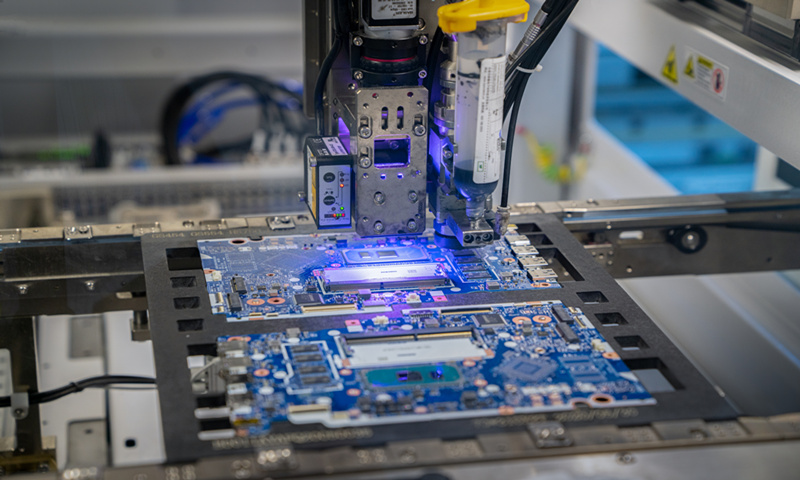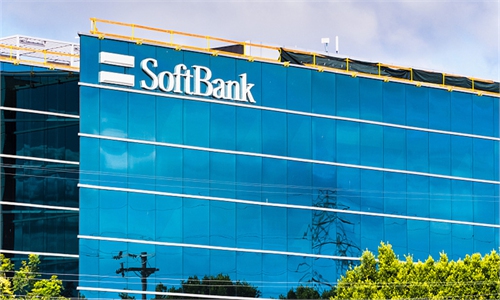Collapse of effort to sell chip designer Arm leaves SoftBank asset sales in disarray

A chip manufacture machine Photo: VCG
The collapse of SoftBank Group Corp's deal to sell chip designer Arm to Nvidia marks a major setback to the Japanese conglomerate's efforts to generate funds at time when valuations across its portfolio are under pressure.
The deal, which had met with industry opposition, fell through because of regulatory hurdles, a source told Reuters, with an IPO of Arm planned instead.
Analysts have questioned the prospects for such a move, given SoftBank's earlier plan to sell Arm, and its IPO track record with many portfolio companies trading below their listing price.
"We are worried that a persistent overhang of SBG stake reduction will keep the stock from appreciating," Jefferies analyst Atul Goyal wrote in a note dated January 29 amid widespread expectation the deal would fall through.
Any move would also have to contend with Arm's troubles in China, where its China-based joint venture is in a legal dispute with its original CEO, Allen Wu.
Under the collapsed deal, SoftBank, which bought Arm for $32 billion in 2016, was to receive $12 billion in cash and about 6.7-8.1 percent of Nvidia -- worth up to $50 billion at current market prices.
Nvidia has become the most valuable US chip company on the strength of its graphic processor chips, with shares gaining 82 percent over the past year.
A 1 trillion yen ($8.7 billion) buyback announced in November has helped support but failed to reverse a slide in the SoftBank share price, which is down by about half since last March's highs.
SoftBank and Nvidia declined to comment. Arm did not immediately respond to a Reuters request for comment.
The group has been funneling money to its second Vision Fund, which had invested in more than 150 start-ups, but investors would like SoftBank to take further steps to boost shareholder returns, analysts say.
"Investors would prefer to see asset sales. I think they would have preferred to see asset sales all along," said Redex Research analyst Kirk Boodry.
The conglomerate has a stake in e-commerce giant Alibaba, whose shares have fallen almost two-thirds since their peak in October 2020 amid a regulatory crackdown.
Alibaba's recent registration of American Depository Shares led Citigroup analysts to observe that the move "might also suggest potential selling intention by SoftBank".
The pressure from sliding asset valuations comes at a watershed moment for the group as it winds down investing at the SB Northstar trading arm and senior executives exit the group.
Reuters



